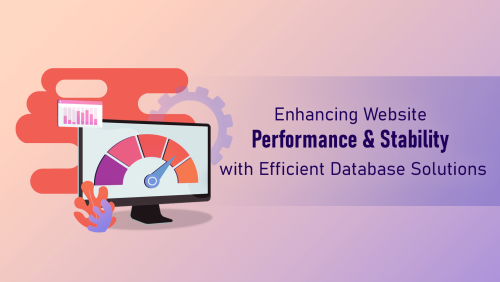
Harnessing the Potential of Custom Software Development
In today's fast-paced digital era, businesses across various industries are constantly striving to gain a competitive edge and enhance operational efficiency. In this pursuit, custom software development has emerged as a game-changer, offering tailor-made solutions that address unique business needs and unlock new opportunities. In this blog post, we will delve into the world of custom software development and explore its benefits, challenges, and how it can revolutionize your business.
Understanding Custom Software Development:
Custom software development refers to the process of designing, creating, and deploying software applications that are specifically tailored to meet the precise needs of an organization. Unlike off-the-shelf software, custom software is built from scratch to address unique business requirements, workflows, and challenges. It involves collaboration between the client and a development team to create a personalized software solution that aligns with the organization's goals and objectives.
Advantages of Custom Software Development:
2.1 Tailored to Specific Needs:
Custom software development allows organizations to build applications that precisely match their unique requirements. By analyzing business processes, workflows, and pain points, custom software can be designed to streamline operations, automate tasks, and improve overall efficiency.
2.2 Scalability and Flexibility:
Off-the-shelf software may lack scalability and flexibility, as it is designed to cater to a broad range of users. In contrast, custom software can be easily scaled up or down as per the organization's evolving needs. It can also be adapted to accommodate future growth, integrate with existing systems, and incorporate new features or modules when required.
2.3 Enhanced Integration:
Custom software has the capability to seamlessly integrate with current software systems, databases, and third-party applications. This integration streamlines data flow, eliminates manual data entry, reduces errors, and improves collaboration across different departments or business functions.
2.4 Competitive Advantage:
By leveraging custom software, organizations can gain a competitive advantage by differentiating themselves from their competitors. Custom software enables businesses to innovate, optimize processes, and deliver unique user experiences that are tailored to their target audience.
2.5 Security and Data Protection:
Off-the-shelf software often faces security vulnerabilities as hackers are familiar with their weaknesses. Custom software, on the other hand, can be built with robust security measures, tailored to meet specific security requirements, and regularly updated to mitigate emerging threats. This ensures data protection and minimizes the risk of security breaches.

Process of Custom Software Development:
The typical stages involved in the custom software development process are as follows:
3.1 Requirements Gathering:
This phase involves in-depth discussions and consultations between the client and the development team to gather detailed requirements, understand business objectives, and identify key functionalities needed in the software solution.
3.2 Design and Prototyping:
Based on the gathered requirements, the development team creates a design blueprint and prototypes that outline the software's look, feel, and user interface. Feedback from the client is collected to refine the design.
3.3 Development and Testing:
Once the design is finalized, the development team starts coding the software, following best practices and industry standards. The software is then rigorously tested for functionality, usability, performance, and security.
3.4 Deployment and Maintenance:
After successful testing, the software is deployed to the production environment. Post-deployment, ongoing maintenance, updates, and support ensure the software remains secure, efficient, and aligned with evolving business needs.
.png)
What are 3 examples of customized software?
Customer Relationship Management (CRM) Software:
CRM software is often customized to meet the specific needs of a business in managing and organizing customer interactions, sales pipelines, marketing campaigns, and customer data. Customization can include tailored dashboards, reports, workflows, and integrations with other systems.
Enterprise Resource Planning (ERP) Software:
ERP software is commonly customized to align with an organization's unique business processes and requirements. It integrates various departments such as finance, inventory management, supply chain, human resources, and manufacturing, allowing businesses to streamline operations and improve efficiency.
Learning Management System (LMS) Software:
LMS software is frequently customized to cater to the specific training and educational needs of organizations. Customization can include personalized course catalogs, user roles and permissions, assessment modules, reporting capabilities, and integration with existing learning resources or systems.
.png)
Why is custom software development better?
Custom software development offers several advantages that make it a preferred choice for many organizations. Here are some reasons why custom software development is considered better:
Tailored to Specific Needs: Custom software is designed and developed to address the unique requirements of a business. It can be built to align perfectly with the organization's processes, workflows, and goals. This level of customization ensures that the software meets the exact needs of the business, maximizing efficiency and productivity.
Scalability and flexibility are often limited in off-the-shelf software solutions. Custom software, on the other hand, can be easily scaled up or down to accommodate the organization's growth and changing needs. It offers the flexibility to incorporate new features, modules, or integrations as the business evolves over time.
Integration with Existing Systems: Custom software can seamlessly integrate with the organization's existing software systems, databases, and third-party applications. This integration eliminates data silos, streamlines information flow, and improves collaboration between different departments or systems. It allows for efficient data exchange, reduces manual work, and enhances overall operational efficiency.
Competitive Advantage: Custom software provides businesses with a competitive edge by enabling innovation and differentiation. Organizations can develop unique features and functionalities that align with their specific industry, target audience, or business model. This customized approach allows businesses to stand out in the market, deliver exceptional user experiences, and gain an edge over their competitors.
Enhanced Security and Data Protection: Custom software can be developed with robust security measures to protect sensitive data and mitigate potential risks. Off-the-shelf software may have known vulnerabilities that hackers can exploit. Custom software, on the other hand, can incorporate the latest security standards, encryption techniques, and authentication mechanisms tailored to the organization's specific security requirements.
Long-term cost efficiency is a benefit of custom software development, despite the potential for higher upfront costs compared to off-the-shelf solutions. Custom software eliminates the need for additional licenses, subscriptions, or modules that may be unnecessary for the organization. It also reduces the reliance on manual workarounds or inefficient processes, leading to increased productivity and cost savings over time.
In summary, custom software development provides organizations with tailored solutions that align with their unique needs, offer scalability and flexibility, integrate seamlessly with existing systems, and provide a competitive advantage. It ensures enhanced security, cost efficiency, and improved overall business performance.
.png)
What is the role of a custom software engineering analyst ?
The role of a custom software engineering analyst is to analyze and assess the specific needs and requirements of clients or organizations seeking customized software solutions. They play a crucial role in bridging the gap between clients and software development teams, ensuring that the software solution aligns with the client's business objectives and delivers the desired functionalities. The responsibilities of a custom software engineering analyst may include:
Requirement Analysis: The analyst conducts in-depth discussions with clients to gather and analyze their requirements, business processes, and workflows. They identify key pain points, challenges, and opportunities where custom software can provide value.
Solution Design: Based on the gathered requirements, the analyst collaborates with software developers and architects to design a customized software solution. They create detailed specifications, blueprints, and prototypes that outline the software's features, functionalities, user interface, and integration points.
Communication and Collaboration: The analyst serves as a liaison between the client and the development team, facilitating clear communication and understanding. They ensure that client expectations are effectively conveyed to the development team and that the progress and updates from the development team are communicated back to the client.
Documentation: The analyst creates and maintains comprehensive documentation of the software requirements, design specifications, and project scope. This documentation serves as a reference for the development team throughout the software development life cycle.
Quality Assurance: The analyst performs quality assurance activities to ensure that the developed software meets the specified requirements. They may conduct testing, review code, and collaborate with the development team to address any issues or bugs identified during the testing phase.
Client Support and Training: After the software is deployed, the analyst may provide support to clients, assisting them with software-related queries, issues, or enhancements. They may also conduct training sessions to familiarize users with the custom software's features and functionalities.
Overall, the custom software engineering analyst plays a vital role in understanding and translating client requirements, designing effective solutions, facilitating communication, ensuring quality, and providing ongoing support. Their expertise and analysis help in delivering customized software solutions that meet the unique needs of clients or organizations.
.png)
Why is custom development best for your Business?
Custom development is often the best choice for businesses due to several key reasons:
Tailored to Specific Business Needs: Custom development allows businesses to have software solutions that are specifically designed to address their unique requirements and challenges. Off-the-shelf software may not fully align with the intricate processes and workflows of a particular business. Custom development ensures that the software solution is tailored to optimize operations and maximize efficiency.
Scalability and Flexibility: Custom-developed software can easily scale and adapt to the changing needs and growth of a business. It can accommodate increased user loads, expanding functionalities, and integration with new systems. The flexibility of custom development allows businesses to incorporate future enhancements and modifications without major disruptions.
Competitive Advantage: Custom software provides businesses with a competitive advantage by offering distinctive features, functionalities, and user experiences that set them apart from their competitors. With custom development, businesses can innovate, streamline processes, and deliver exceptional services that cater specifically to their target market.
Enhanced Integration: Custom software can seamlessly integrate with existing systems and third-party applications, creating a cohesive and efficient technology ecosystem within the business. This integration eliminates data silos, improves communication, and streamlines workflows across different departments or systems.
Security and Data Protection: Off-the-shelf software is a common target for hackers due to its widespread usage and known vulnerabilities. Custom-developed software, however, can be designed with robust security measures that align with the specific security requirements of the business. This ensures data protection, minimizes the risk of security breaches, and safeguards sensitive business information.
Long-term Cost Efficiency: While custom development may involve higher upfront costs compared to off-the-shelf software, it offers long-term cost efficiency. Custom software eliminates the need for expensive licenses or modules that may not be relevant to the business. It also reduces reliance on manual workarounds and inefficient processes, resulting in increased productivity and cost savings over time.
Ongoing Support and Maintenance: With custom development, businesses have access to dedicated support and maintenance services. The development team can provide timely updates, address any issues or bugs, and offer ongoing enhancements as the business evolves. This ensures that the software remains up-to-date, efficient, and aligned with changing business needs.
Custom development is beneficial for businesses as it provides tailored solutions, scalability, competitive advantage, enhanced integration, security, cost efficiency, and ongoing support. By investing in custom software development, businesses can optimize their operations, improve productivity, and achieve sustainable growth in their respective industries.
Conclusion:
Custom software development offers organizations a range of advantages, such as tailored solutions, scalability, enhanced integration, competitive advantage, and robust security. By engaging in a collaborative development process, businesses can create software applications that optimize their operations, improve productivity, and foster growth in











